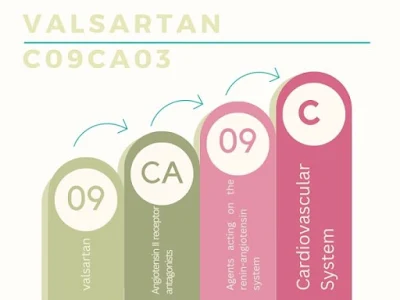Diovan (Valsartan): A Comprehensive Guide to Managing High Blood Pressure and Heart Failure
High blood pressure and heart failure are two of the most common health problems affecting millions of people worldwide. Fortunately, there are medications available that can help manage these conditions and improve overall health outcomes. One such medication is Diovan (valsartan).
Diovan belongs to a class of drugs known as angiotensin II receptor blockers, which work by relaxing blood vessels, allowing blood to flow more easily and reducing the workload on the heart. As a result, Diovan can effectively lower blood pressure, improve heart function, and reduce the risk of related health complications.
Diovan is widely prescribed by doctors and healthcare providers as a safe and effective treatment option for high blood pressure and heart failure. It can also be used to reduce the risk of heart attack and stroke in patients with certain cardiovascular conditions.
However, like all medications, Diovan may cause side effects in some individuals. The most common side effects include dizziness, headache, fatigue, and nausea. In rare cases, Diovan may cause more serious side effects such as liver problems or allergic reactions. Therefore, it's important to discuss any potential risks or concerns with your doctor before taking Diovan.
In this comprehensive guide, we'll provide you with all the information you need to know about Diovan, including its uses, dosage, side effects, interactions, and more. Whether you're considering Diovan as a treatment option or you're already taking it and want to learn more, this guide is a must-read for anyone seeking to manage high blood pressure or heart failure.
To read our comprehensive guide on Diovan, please visit https://pharmacily.com/if-youre-looking-for-information-about-diovan-valsartan-this-comprehensive-guide-has-everything-you-need-to-know-learn-about-its-uses-dosage-side-effects-interactions-and-more-discover-why-d/
Diovan Classification
The ATC (Anatomical Therapeutic Chemical) code for Diovan (valsartan) is: C09CA03
The ATC code is a unique code assigned to each medication by the World Health Organization (WHO) to classify drugs according to their therapeutic use and chemical composition. The code consists of seven alphanumeric characters and is widely used for drug utilization research and in medical databases.
- C - This is the first level of the ATC code, which identifies the therapeutic group. In this case, C stands for "Cardiovascular System".
- 09 - This is the second level of the ATC code, which identifies the pharmacological subgroup. In this case, 09 stands for "Agents acting on the renin-angiotensin system".
- CA - This is the third level of the ATC code, which identifies the chemical/therapeutic/pharmacological sub-subgroup. In this case, CA stands for "Angiotensin II receptor antagonists".
- 03 - This is the fourth level of the ATC code, which identifies the chemical substance. In this case, 03 stands for "Valsartan".
So, when put together, the ATC code C09CA03 for Diovan (valsartan) indicates that it is a medication that belongs to the cardiovascular system group, specifically the subgroup of agents acting on the renin-angiotensin system, which is further classified as an angiotensin II receptor antagonist, and the specific chemical substance is valsartan.
About the Author
Dr. Ahmad Baker, PharmD
He is a senior pharmacist and health educator with extensive experience in the Middle East and North Africa region. Through his writing, Dr. Ahmad aims to empower communities by providing reliable, evidence-based health information. With expertise in clinical pharmacy and regulatory affairs, he strives to offer unique insights into healthcare and simplify complex medical concepts, making them accessible to everyone.
Legal Disclaimer
The information provided in this blog is for educational purposes only and is not a substitute for professional medical advice. We do not guarantee the accuracy or completeness of information regarding medications or medical products, and official sources should be verified before making any decisions. By using this blog, you agree to assume personal responsibility for relying on the information provided.


Comments
Post a Comment